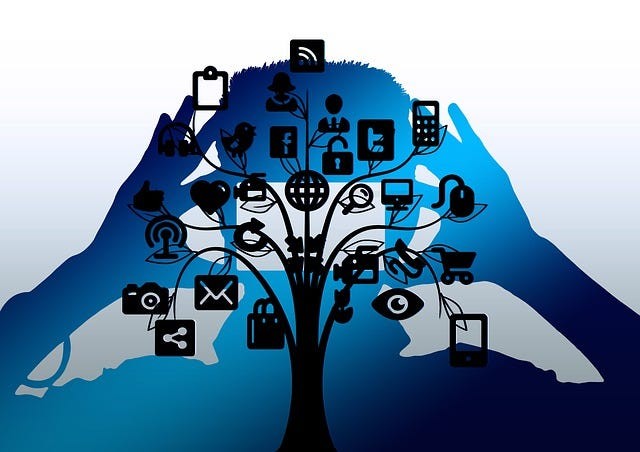In today’s digital age, social media has become an integral part of our lives. It connects us with friends, keeps us informed, and allows us to express ourselves. But alongside these benefits, there’s a growing pressure that many of us feel when we scroll through our feeds—the pressure to look perfect, be successful, and live a life that’s “Instagram-worthy.” It’s easy to get caught up in the comparison game, and over time, this can take a toll on our mental health. Let’s explore how we can navigate the pressures of social media with compassion and find a more peaceful relationship with it.
1. The Comparison Trap: Understanding Its Impact: Social media can often feel like a highlight reel where everyone seems to be living their best life. When we compare ourselves to these curated images, it’s easy to feel inadequate, thinking that we’re not doing enough or that our lives don’t measure up. This comparison trap can lead to feelings of anxiety, low self-esteem, and even depression. It’s important to remember that what we see online is just a snapshot, often edited and filtered, and doesn’t reflect the full reality of someone’s life.
2. Curating Your Feed: Surround Yourself with Positivity: One way to reduce social media pressure is to be intentional about who and what you follow. If certain accounts make you feel bad about yourself or trigger negative emotions, consider unfollowing or muting them. Instead, fill your feed with content that uplifts you—accounts that inspire, educate, and bring joy. Surrounding yourself with positivity can help shift your mindset and create a healthier social media experience.
3. Setting Boundaries: Take Control of Your Social Media Use: It’s easy to lose track of time when scrolling through social media, but too much time online can exacerbate feelings of pressure and inadequacy. Setting boundaries around your social media use can help you maintain a healthy balance. Consider setting specific times of the day for checking social media, limiting your screen time, or even taking regular breaks to disconnect and recharge. These boundaries allow you to stay connected without letting social media consume too much of your time and energy.
4. Practicing Mindfulness: Stay Present in the Real World: Mindfulness is the practice of being fully present in the moment, without judgment. When you find yourself getting caught up in social media pressure, practicing mindfulness can help you reconnect with the real world and your own experiences. Take a moment to step away from your screen, breathe deeply, and focus on what’s happening around you. Engage in activities that ground you in the present, such as spending time in nature, meditating, or enjoying a hobby. Mindfulness helps you break free from the pressures of social media and reminds you of the value of real-life connections and experiences.
5. Embrace Authenticity: Share Your True Self: The pressure to present a perfect image online can be overwhelming, but it’s important to remember that authenticity is powerful. Embrace the courage to share your true self—flaws, struggles, and all. When you’re authentic, you not only free yourself from the burden of perfection but also create space for genuine connections with others. By sharing your real experiences, you can inspire others to do the same and contribute to a more supportive and realistic online community.
6. Recognize the Unrealistic Standards: Know When to Step Back: Social media often sets unrealistic standards for beauty, success, and happiness. It’s essential to recognize these standards for what they are—unattainable ideals that don’t define your worth. If you find that certain platforms or accounts are consistently making you feel pressured or inadequate, it might be time to step back. Taking a break from social media can help you regain perspective and remind you that your value isn’t determined by likes, followers, or external validation.
7. Seek Support: Don’t Be Afraid to Ask for Help: If the pressure from social media becomes too overwhelming, it’s important to seek support. Talking to friends, family, or a mental health professional about how you’re feeling can provide relief and offer new perspectives. You’re not alone in this—many people struggle with social media pressure, and opening up about it can lead to meaningful conversations and support.
8. Focus on What Matters: Prioritize Your Well-being: At the end of the day, what matters most is your well-being. Social media is just one aspect of life, and it’s important not to let it overshadow what truly brings you joy and fulfillment. Prioritize activities that nourish your mind, body, and soul, and remember to celebrate your achievements, no matter how small. By focusing on what truly matters, you can find peace amidst the noise of social media and live a life that feels true to you.
Social media can be a powerful tool for connection and self-expression, but it also comes with its own set of pressures. By being mindful of how social media affects you, setting healthy boundaries, and embracing authenticity, you can navigate these pressures with resilience and grace. Remember, you are more than your online presence—your worth isn’t defined by likes, comments, or followers. Be kind to yourself, and know that it’s okay to step back when you need to. Your mental health and well-being always come first.

